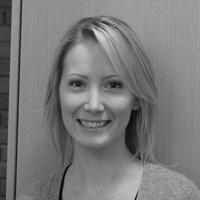New impact activities planned for the school
The ABE school's revised impact strategy has now been established. The purpose of the impact strategy is to support the school's long-term and strategic work with collaboration and social impact. New activities are planned for the school's employees in Autumn 2020.

The strategy is based on the school's research and education areas and focuses on collaborative and societal involvement activities relevant to them. Johan Silfwerbrand , Impact Leader at the ABE school, has revised the document from 2016 in consultation with the school's impact group and School Management Advisory Board.
“Our school is already very active in collaboration today. Our research and education is largely applied, socially beneficial and we have very good contacts with businesses and other organisations. Of course, one of our biggest areas of impact is the knowledge that reaches society through all our graduated engineers, architects, doctors and licentiates. But new research results we have to circulate in other ways. Most researchers and teachers have contacts in industry and public organisations, and I actually think we're doing better there than researchers at other schools. But we can be even better at reaching out with our results to the industry, and to the public. Our activities are largely tax-financed - it goes without saying that what we do must reach our society.”
The strategy works in harmony with other governing documents for the ABE school, and is a complement to these. This is especially true of the school's and KTH's development plan as well as in the operational assignments in which several goals for collaboration already exist. The school's impact group, with a representative from each department, is working together to implement activities within the framework of the strategy and is now planning for Autumn 2020.
“We will, among other things, conduct a workshop on ethics and collaboration for ABE school employees during the Autumn. The idea is to discuss different cases; e.g. ethical dilemmas concerning research funding from industry, the risk of ethical difficulties linked to research interviews and possible self-censorship of results that may cause public concern or are controversial. The school's impact group will have a meeting in April and during that meeting, the programme for the above workshop will be established."
A lecture on media training was conducted at the school in 2017 and a similar activity is now being planned for Autumn 2020. Johan thinks it is important for everyone in the faculty to learn a little about how the media landscape works.
“It is not always easy to handle tricky questions from TV or radio, but it is a very good way to reach out with our knowledge and expertise. Journalists are often interested in producing alarming headlines that sell while researchers are looking for consensus and don't want to cause fear. It is extremely valuable to get a clue about how they think 'on the other side' ".
In the Autumn of 2019 and Spring 2020, the school has introduced a new open seminar series, Torsdagsseminariet (the Thursday seminar), where the invitations has been widely distributed among both KTH employees and the industry. One Thursday afternoon each month, selected current research or activities are presented for about 45 minutes followed by mingling. The lectures have free admission and are open to all. Johan encourages everyone to take the chance to learn more about the activities going on at the school.
“The Thursday seminars have been very much appreciated, with audience from both industry and various parts of KTH. I hope for a larger audience when we start again this Autumn, more people should take the chance to learn about what happens at our school! I would also like to urge those researchers and teachers who would consider giving a speech to report interest. It is a great opportunity to market yourself and your research, new teaching methods, or interesting collaborations. The important thing is that it is something that can be presented in a popular science way and is interesting for a wider circle."

In conjunction with RAE2020, all Department have had to write a report which included the task of identifying so-called impact cases. Josefin Backman , Communication manager at the ABE school and the school's impact communicator, also sees this as a chance to reach out broadly with concrete examples of successful activities:
“Impact cases are basically examples of case studies or 'success stories' that show activities we have already done with a clearly created social impact and our part in this impact. From the research or education that is the source to a description of the actual effect, change or social benefit created. From the school, we will now review the examples identified through the RAE report and help make them into popular science texts to publish on the ABE school's website. If anyone has more good examples, do let me know!”
Johan Silfwerbrand is also a member of a central group led by Johan Blaus (KTH Business Liason) with all schools' Impact Leaders. The group shares best practices, learn about the national and international work in this area and coordinate the work on impact at KTH level. He adds:
“An important part is the question of how the merits of collaboration and cooperation could be more valued. Impact work is significant and valuable, but it is not visible when the merits are due. Work is underway where several universities in Sweden, including KTH, are participating to see how this can be done. Continuous close cooperation with industry and society in general is important. In close cooperation we get to know what problems they have, and can through our research and education help to change and improve the society of the future. So we get knowledge of the many challenges that exist. Of course, we as researchers and teachers identify many questions ourselves, but the collaboration often makes things overall better.”

